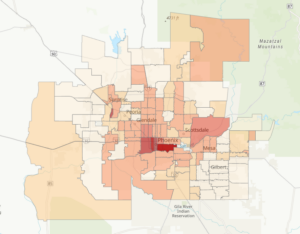Week 7: Healthcare Coverage
Joplin C -
Hello everyone!
This week, I looked into another factor that could have a correlation with heat-related illness: healthcare coverage. Since the United States lacks a universal healthcare system, healthcare insurance is a way for many people to afford access to healthcare in the United States.
However, not everyone is insured. While some entities such as employers or programs such as Medicare provide medical insurance coverage, many lack the ability to afford healthcare. As a result, this puts certain individuals more at-risk to specific health issues, including heat-related illness.
Without healthcare coverage, many individuals may have higher rates of pre-existing healthcare conditions with no way to treat them affordably, which can affect the susceptibility to heat-related illness. Treatment of heat-related illness may also be an issue too, as the costs of doing so may discourage patients from receiving professional healthcare treatments.
Low-income communities, which often have higher rates of uninsurance, are also more likely to live in urban heat islands with limited access to cooling centers and air conditioning. This makes healthcare access even more critical in preventing and treating heat-related illnesses. Expanding coverage could reduce disparities in heat-related health outcomes, particularly as extreme heat events become more common.
With all of these factors combined, it makes sense as to why there seems to be a correlation between healthcare coverage status and heat-related deaths. However, more must be done to determine whether or not this is due to causation, but that is currently out of the scope of this senior project.
That is all that I have for this week, check back in next time! See you all soon!
Joplin Chambers


